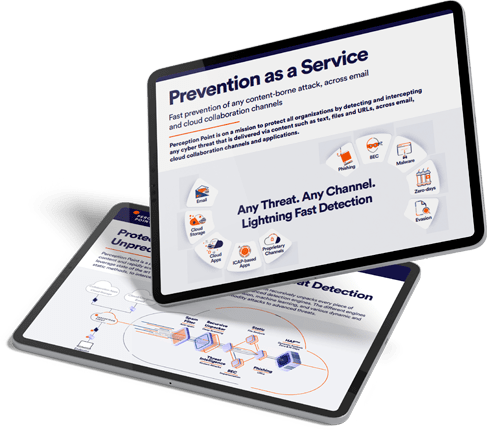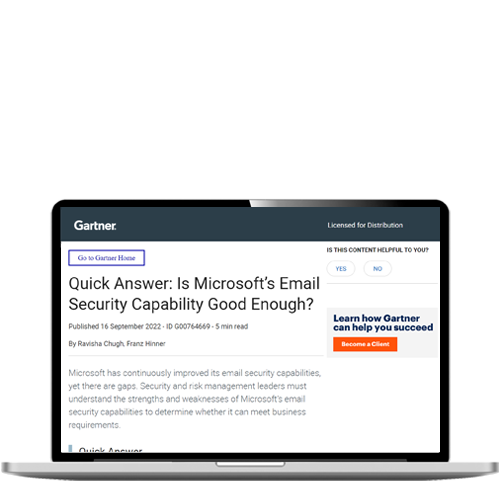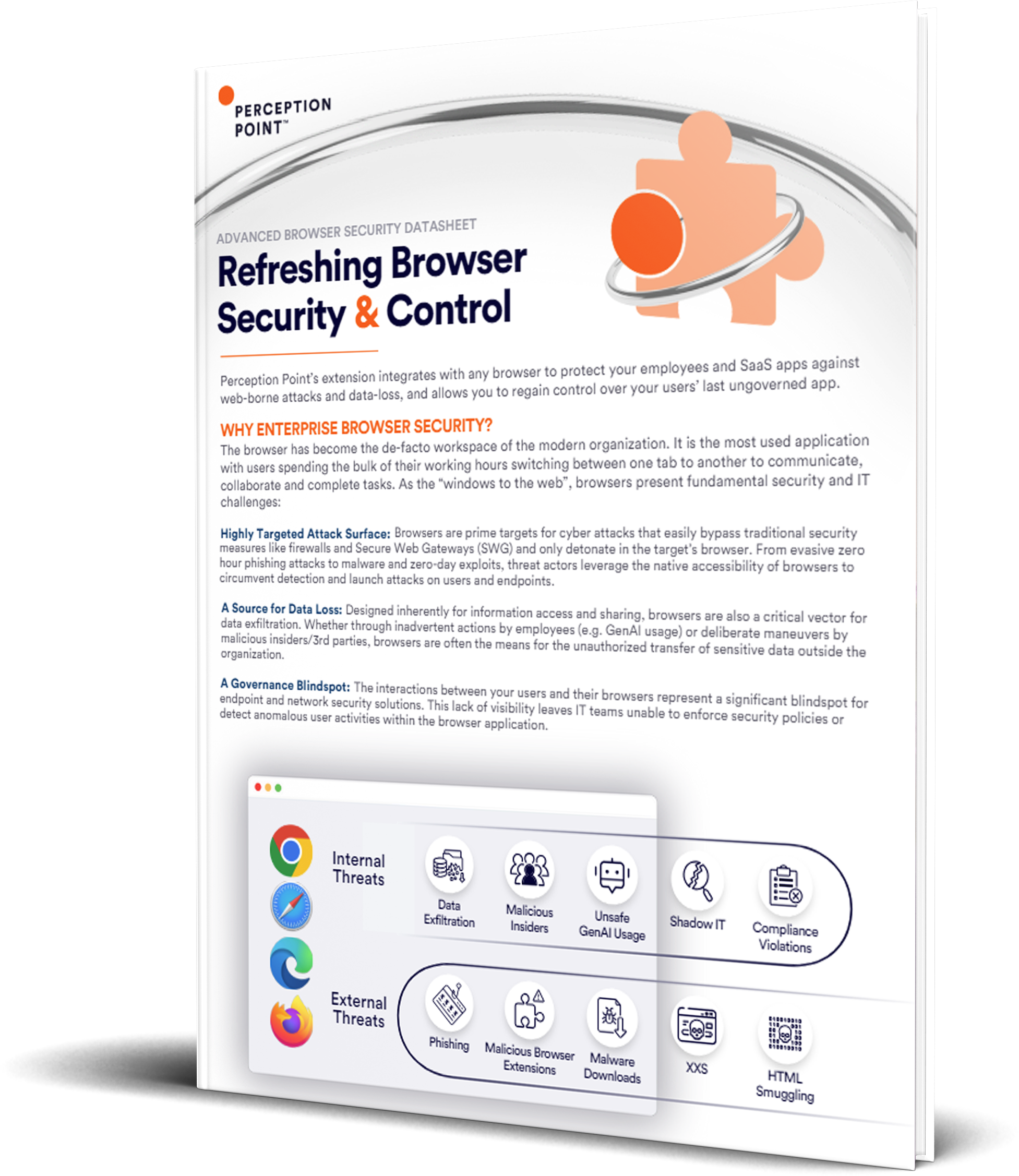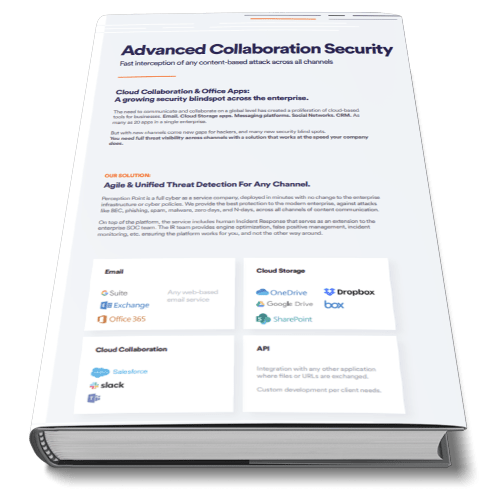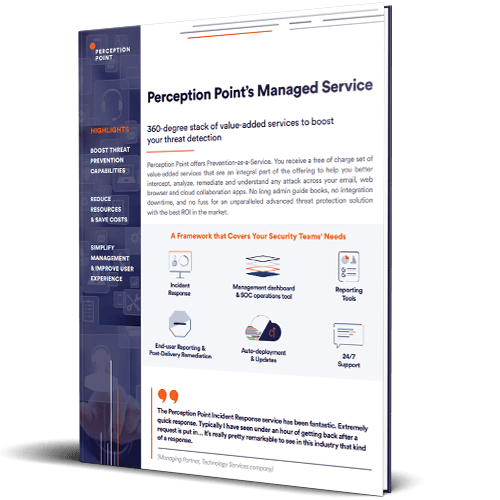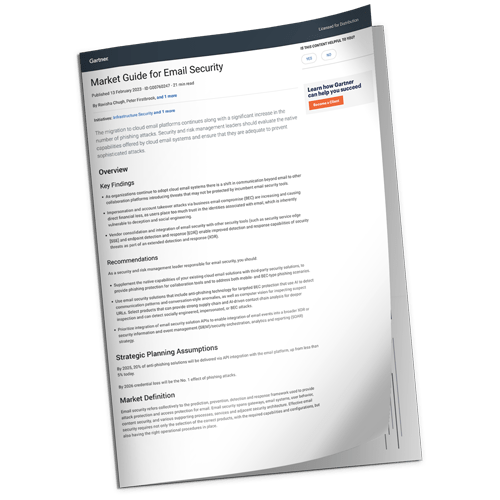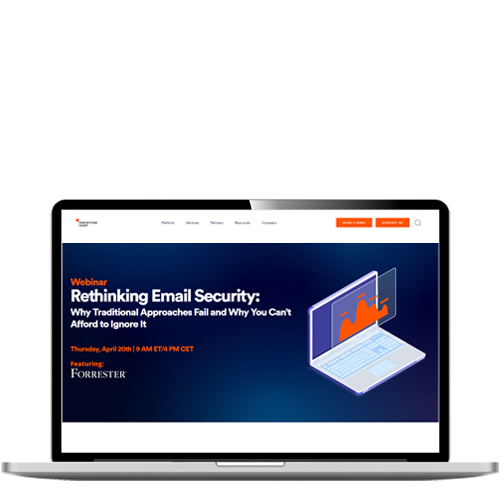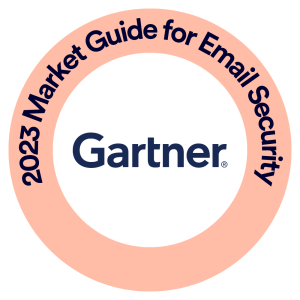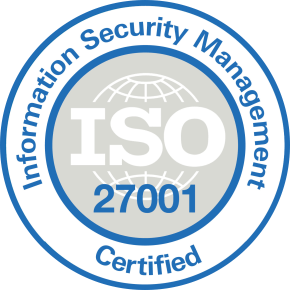What Are Email Security Services?
Email security services are tools and systems designed to protect email accounts and communications from unauthorized access, loss, or compromise. They help to secure sensitive information transmitted via email against threats like phishing, spam, malware, and other cyber-attacks.
These services and solutions use a variety of techniques including encryption, filtering, and threat detection to protect email correspondence. Implementing an email security solution is critical for businesses and individuals alike to maintain privacy, ensure the integrity of messages, and comply with regulatory requirements.
In this article
Key Features of Email Security Services
Email security services typically offer the following capabilities.
Phishing Prevention
Phishing prevention is aimed at identifying and blocking emails that attempt to deceive recipients into revealing personal information. Email security services employ advanced algorithms and pattern recognition to analyze email content, including links and attachments, for signs of phishing attempts. Advanced solutions use large language models (LLMs) to more deeply analyze messages and counter sophisticated leveraging the same models.
By detecting phishing emails, security services prevent users from inadvertently providing sensitive information to malicious actors. Phishing prevention mechanisms often include user education tools, helping individuals recognize and avoid phishing attempts.
Malware Detection
Email-based malware detection involves scanning incoming and outgoing emails for malicious software designed to harm or infiltrate networks and devices. Using scanning engines, email security services examine attachments and embedded links for malware, including viruses, ransomware, spyware, and trojans. Detected threats are quarantined or deleted to prevent harm.
In addition to real-time scanning, many email security solutions offer heuristic analysis, leveraging behavior-based algorithms to identify unknown or evolving malware strains. This feature is critical in defending against zero-day attacks and sophisticated threats that traditional detection methods may miss.
Spam Filtering
Spam filters automatically identify and segregate unsolicited bulk emails, reducing clutter and minimizing the risk of exposure to potentially harmful content. Spam filters analyze emails based on known spam characteristics, sender reputation, and user-defined rules.
These filters can improve productivity by keeping inboxes clean, in addition to serving as an initial line of defense against phishing and malware disseminated via spam emails. They are continuously updated to adapt to new spam tactics.
Email Authentication
Email authentication ensures that emails are verified as coming from legitimate sources, thus protecting against spoofing and impersonation attacks.
By implementing standards like Sender Policy Framework (SPF), DomainKeys Identified Mail (DKIM), and Domain-based Message Authentication, Reporting, and Conformance (DMARC), email security services verify the sender’s identity. These email security protocols help to prevent unauthorized use of a domain to send fraudulent emails.
Incident Response
Incident response capabilities are crucial for quickly addressing and mitigating the impact of security breaches. When an email security threat is detected, security services can provide a structured approach to managing the aftermath of the incident. This includes identifying the breach, containing the damage, eradicating the threat, and recovering from the incident.
Incident response services can also help analyze an email-related breach to learn from the event and prevent future occurrences. For organizations, having robust incident response capabilities ensures that they can swiftly restore operations and maintain trust with clients and stakeholders.

Tal ZamirCTO, Perception Point
Tal Zamir is a 20-year software industry leader with a track record of solving urgent business challenges by reimagining how technology works.
TIPS FROM THE EXPERTS
- Adopt a zero-trust email model. A zero-trust approach to email security ensures that every email is treated as potentially malicious until proven otherwise. This model requires strict identity verification, continuous monitoring, and multi-factor authentication (MFA) for accessing email accounts.
- Leverage advanced email header analysis. Email headers contain crucial information that can help identify phishing or spoofing attempts. Automating the deep analysis of headers for signs of anomalies, such as mismatched sender and return-path, can preemptively identify threats before they reach the user.
- Implement incident response workflows
Integrating incident response workflows with your email security service can streamline and speed up your incident response. Automating repetitive tasks like quarantining suspicious emails or generating incident reports saves time and reduces human error.
Types of Email Security Services
There are several types of email security services available. Here are some of the main ones.
1. Cloud-Based Email Security Solutions
Cloud email security solutions are hosted services that offer scalable, flexible protection for email systems. Without the need for on-premises hardware or software, these solutions provide defense mechanisms including phishing protection, malware scanning, and data loss prevention.
The cloud-based approach enables rapid deployment and easy management, making it an attractive option for organizations seeking efficient email security. These services adapt to evolving threats, offering continuous protection against both known and emerging email-based attacks.
2. AI-Powered Email Security Services
Advanced email security services leverage artificial intelligence and machine learning algorithms to predict, identify, and block sophisticated email threats. By analyzing patterns and learning from historical data, they can adapt to new tactics employed by cybercriminals, offering proactive protection. With the growing use of large language models (LLMs) by attackers, advanced services can help identify and block sophisticated attacks leveraging generative AI.
The use of AI helps in accurately detecting phishing, spear-phishing, and zero-day attacks, minimizing false positives. AI-powered services provide advanced, constantly updated defenses against rapidly evolving threats.
3. Secure Email Gateways
A Secure Email Gateway (SEG) serves as a checkpoint, intercepting and analyzing all email traffic to and from an organization, making it possible to detect and block threats. SEGs employ technologies such as anti-virus scanning, spam filtering, and deep content analysis to protect against malicious content and unauthorized data exfiltration. SEG solutions are available as on-premises appliances or cloud-based services.
4. Email Data Protection (EDP)
Email data protection (EDP) services focus on safeguarding sensitive information within emails and attachments. EDP solutions enforce data security policies, detect sensitive data in transit, and prevent unauthorized sharing or access. They often include encryption, rights management, and content filtering features.
For organizations subject to regulatory requirements, EDP services ensure compliance by monitoring and controlling the flow of sensitive information.
5. Email Encryption Services
Email encryption services secure email content by transforming readable text into encoded messages. Only the intended recipient, holding the decryption key, can revert the message back to its original form. This method ensures confidentiality and prevents unauthorized access to sensitive information during transmission or storage.
Modern email encryption services are user-friendly, offering seamless integration with email clients and automatic encryption based on predefined policies. They are useful for organizations handling sensitive data, ensuring compliance with privacy laws and standards.
6. API-Based Protection
API-based protection integrates directly with email platforms via APIs, offering real-time scanning and threat prevention. This facilitates in-depth analysis of email content, attachments, and behavior, enabling quick detection and response to threats. API-based protection can enhance existing email security by providing an additional layer of defense against sophisticated attacks and data loss.
How to Choose an Email Security Service
There are several things to consider when evaluating email security services.
Review Compliance Requirements
When choosing an email security service, it’s crucial to understand the compliance requirements specific to your industry. Regulations such as GDPR, HIPAA, or SOX dictate how data should be handled and protected, influencing the features and capabilities your chosen email security solution must possess. For instance, healthcare organizations under HIPAA must ensure that any email service they use can secure PHI (Protected Health Information) to prevent unauthorized access or breaches.
A provider that is familiar with and has a proven track record of meeting industry-specific regulations can significantly ease the compliance burden. It’s beneficial to select email security services that offer detailed logging and reporting capabilities, as these features help demonstrate compliance during audits and provide visibility into email security incidents.
Evaluate Feature Sets
The feature set of an email security service should align closely with your organization’s specific needs. For smaller businesses, essential features might include robust spam filters, basic malware protection, and phishing detection. In contrast, larger enterprises or those in highly targeted industries may require advanced predictive threat intelligence, sandboxing for attachment analysis, and integrated incident response capabilities.
Evaluating the feature set also involves considering the scalability of the service to accommodate future growth and the flexibility to configure features to meet evolving security needs. For example, organizations with a high risk of targeted attacks might prioritize advanced heuristic analysis and behavior-based detection technologies that can adapt to new and emerging threats.
Consider Integration and Compatibility
Integration and compatibility are critical factors in selecting an email security service, as the chosen solution must seamlessly work with existing IT infrastructure. This includes compatibility with email servers, compatibility with cloud services (if the organization uses cloud email platforms like Microsoft 365 or Google Workspace), and the ability to integrate with other security tools such as SIEM (Security Information and Event Management) systems.
Effective integration enhances the overall security posture by enabling coordinated responses to threats and providing a unified view of security events.
Evaluate Resources Needed to Operate the Solution
The choice of an email security service should also consider the in-house expertise required to manage and maintain the solution effectively. Some services might demand more technical skills to operate, including detailed configurations and ongoing management, while others might be a turnkey solution with less intensive maintenance requirements. Ideally, the solution you choose would include a 24/7 incident response service to help lower your SOC resources.
Assess whether your IT team has the necessary skills and resources to handle the chosen solution, or if additional training or staffing will be needed. Understanding this aspect can help in budgeting not only for the service itself but also for any additional personnel or training costs.
Ensure Future-Proofing
In the rapidly evolving landscape of cybersecurity, ensuring that an email security service can adapt to new threats is crucial. Future-proofing involves assessing the vendor’s commitment to research and development, their track record in updating their services with new capabilities, and their responsiveness to emerging email security challenges.
Services that regularly update their threat intelligence databases and algorithms and provide new features to counteract evolving threats will be better positioned to protect your organization in the long term. Additionally, considering services that incorporate cutting edge AI architectures can offer advanced threat detection and adaptive responses, making them more effective as threats become more sophisticated.
Perception Point: Next-Gen Email Security Service
Perception Point’s Advanced Email Security contains multiple scanning engines and threat intelligence for enhanced protection against attacks like phishing, spam, malware and BEC.
For advanced threats, the solution leverages hardware-based and software-based tracking to identify evasive threats. Proprietary software algorithms scan code at the CPU-level to intercept attacks at the earliest stage possible – the exploit – before malware is even delivered.
Perception Point is easy to deploy, analyzes email in seconds, and can scan email traffic at any scale.
Learn more about Perception Point’s Advanced Email Security
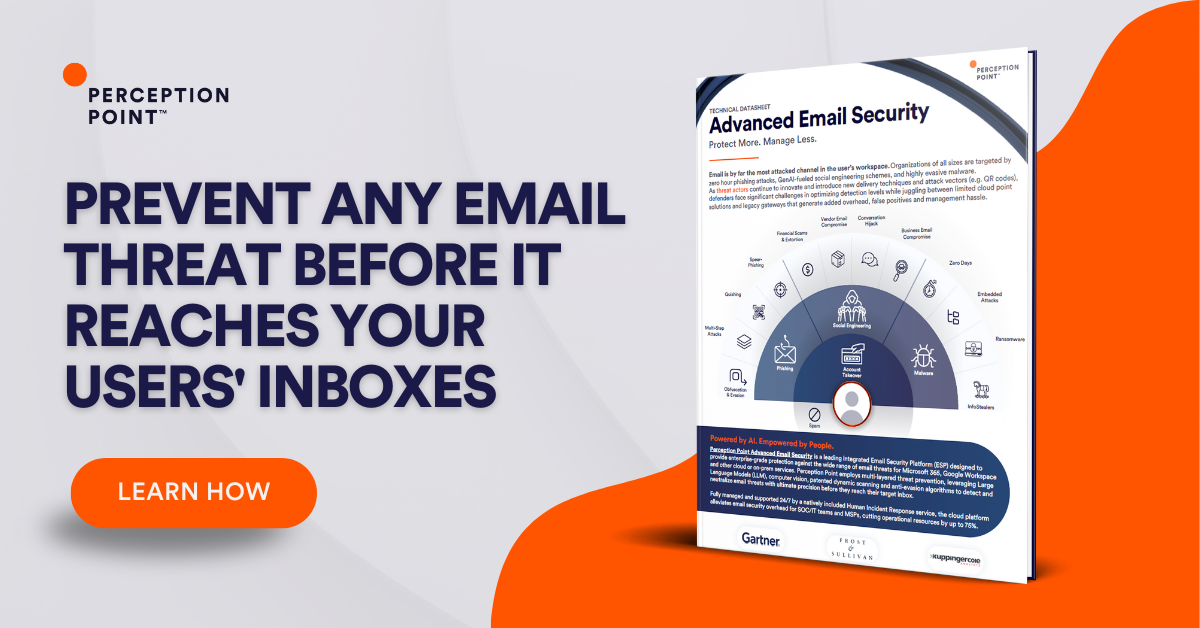
Email security services are tools and systems designed to protect email accounts and communications from unauthorized access, loss, or compromise. They help to secure sensitive information transmitted via email against threats like phishing, spam, malware, and other cyber-attacks.
Email security services typically offer the following capabilities:
1. Phishing Prevention
2. Malware Detection
3. Spam Filtering
4. Email Authentication
5. Incident Response
There are several types of email security services available. Here are some of the main ones:
1. Cloud-Based Email Security Solutions
2. AI-Powered Email Security Services
3. Secure Email Gateways
4. Email Data Protection (EDP)
5. Email Encryption Services
6. API-Based Protection
There are several things to consider when evaluating email security services, including:
1. Review Compliance Requirements
2. Evaluate Feature Sets
3. Consider Integration and Compatibility
4. Evaluate Resources Needed to Operate the Solution
5. Ensure Future-Proofing


